
Recent events – from snarled supply chains to sparring war in Ukraine – have encouraged me to write on anger. Some said that we live lives of simmering fury and boiling rage. As we get older, anger becomes a constant companion. Almost everything enrages us, from delayed deliveries to political bickering and geopolitical hostility. Inappropriate use of texting, either while driving or walking down the street, is included.
The anger of the human species is as horribly inevitable as death. And the only reason we are not that angry as kids is because we have no idea how the world and things should work. Some say that it is normal to get angry. Being angry is being human. Without feeling mightily hacked off, our forebears would never have crawled from the primordial swamp.

But anger can also be repulsive. Anger will not be repulsive if it is righteous and if the fury is vented with an icy calm (p/s: I mean polite). I am sure none of us aspires to the anger explosions of Dr Banner when he transforms into the Hulk. The icons of hero mythology all operate at a far lower temperature. How often do James Bond’s eyes bulge with fury? Never. The 007 agent slays the agents of smersh and spectre without losing his cool. Even Miranda Priestly in “Devil Wears Prada” (some ladies think she’s an inspiration, but hardly a heroine) is capable of committing mass murder without raising her voice above a whisper.

As the war in Ukraine rages on, households across the world face soaring food prices and the prospect of shortages. Russia and Ukraine are major exporters of barley, maize and sunflower oil. Both countries produce a third of the world’s wheat. When it comes to wheat production, one cannot just turn on a tap. It is not oil. If farmers cannot get their fields sowed, there won’t be any wheat this harvest time. That would result in a worldwide shortage of wheat, on top of a major price increase. Traditionally, the milling of wheat produces flour for human use and its by-products for animal feeds. Any disruption to harvesting and milling would have a catastrophic effect on global food security.

One does not need to see recent eye-popping inflation report to know that prices are getting painfully high. We can see it every time we go to the supermarket. Rising prices stoke anger.

If you are a fan of Netflix like me, you might have noticed the addition of awkwardly named “Old Enough” (“Hajimete no Otsukai”), a Japanese programme that follows children as young as two being sent out by parents on their first errand. We see whether these young kids manage the round trip to the supermarket and remember all things they are supposed to buy. In one episode, a girl name Yuta complained about expensive dango rice dumplings!
I always remind myself that if I were to be angry, it must be righteous and not repulsive. I understand that lives are full of compromises and trade-offs. Instead of dwelling in anger and frustration, we should look at this as a chance to build our resilience. Given the rising food prices as a result of factors beyond our control, we see innovative start-ups challenge the way food is produced, distributed and consumed. It is a call to search for alternative protein sources as food and feed.
As we do our grocery shopping and preparation for Eid or Hari Raya, and in the spirit of reflection as well as celebration, Penjana Kapital and I seek forgiveness from our partners and readers: letting go of grudges, releasing of anger that may hold us back.

This Ramadan teaches us the ability to withstand adversity, turn challenges to celebration.


The Hungry Philosopher
Ramadan Kareem dear esteemed readers! Or by the time you read this, Selamat Hari Raya! (If we published on time that is, fingers crossed). For the benefit of our international readers (yes, the three of you), Ramadan is observed by Muslims worldwide as a month of fasting, prayer, reflection and community.
Half of Penjana Kapital’s analysts participated in this observance, and my teammate, whom I shall refer to as “II” (Nicknamed: Pause Button) was one of them. Since joining the team, “II” the overachiever has consistently up the game and raised the bar for us analysts. Thus, in the spirit of gratitude, togetherness and teamwork, I made the decision to participate and share his daily struggle – 7pm onwards.
If there is one thing “II” likes more than raising the game, it will have to be lunch while watching football highlights. The month of Ramadan however, “Il” tends to be especially quiet during lunch time. Thus, what transpired during our Kapitalist ideation surprised us. Perhaps it was the hunger, the breakaway from his routine, or fasting unleashed a hidden talent. As the analysts struggled to find alignment on the Kapitalist’s theme, “II” silenced the crowd with the following quote.

Some of us, awestruck while the others petrified – was that a cryptic message meant for us to decipher? Or has our star analyst gone one fry short of a Happy Meal?
Turns out, that was exactly what he meant. Chicken, or rather food prices have soared in recent years. It is especially apparent in a post-pandemic Malaysia, where many lost their livelihoods struggling to put food on the table – which begs the question.
Why is Food so Expensive Now?
Recent months saw an uproar among Malaysians with regards to the rising cost of basic food items such as cooking oil, vegetables, and chicken. According to the Department of Statistics Malaysia (“DOSM”), Malaysia’s inflation, as measured by consumer price index (“CPI”) rose 2.2% year-on-year (“YoY”); mainly driven by the increase in food and non-alcoholic beverages basket of the index. The 4% increment of this basket was largely contributed by Food & Non-Alcoholic Beverages +3.5% YoY.
As much as it pains me to say this, our dear Pause Button or “II” is right on point.
The End of Covid-19?
As we move forward towards a more relaxed Covid-19 SOP in May, let us reflect and look back on how the pandemic has changed our every aspect of our lives. For instance, e-wallets are more prevalent in our lives now; people hardly carry stacks of cash around anymore. Whilst many lives were tragically lost, many good came out of this pandemic too. One of the silver lining is heightened sense of awareness towards healthy diet which inadvertently led to the need to do groceries and consumers’ sensitivity towards food prices.
1Q2022: Uproar as Food Prices Soar
Since the advent of 2021, food & non-alcoholic beverages have been making headlines, rising at an alarming rate especially in recent months. DOSM in its March 2022 CPI1 report states that this is especially the case in 1Q2022 where prices of vegetables, meat and fish soared rapidly on the back of supply shortage, weather factor and rising animal feed prices. The upward pressure on food prices is further exacerbated by global prices of fertilisers and pesticides, which was and still is affected by the conflict between Ukraine and Russia.
With the rising of food prices, consumers are feeling the pinch and feel the need to stretch their money. However, there is only so much penny pinching that one can do when there are structural issues that need to be overcome. Our hungry philosopher will still be rambling about prices of chicken.
1. CPI – Consumer Price Index measures the weighted average prices of basket of goods and services. Typically associated with cost of living.
Alternative Food Source?
With a title like “The rise of the Alternatives” one would expect this month’s theme to be all about alternative protein, meat and et-cetera. Dear readers, I would like to introduce you to the term “non-sequitur” – talking about alternative meat would be too obvious, and we’ve already discussed it extensively in our FoodTech themed January issue. Of which the following were cited as key challenges faced by alternative meat producers.

Setting aside Taste, Texture, Trust, we focus our crosshair on “Price”. While the idea of alternative meat is novel, we cannot deny the fact that plant based or any alternative meat for that matter are ridiculously expensive. Plus, its Hari Raya weekend, I do not think my parents will forgive me ever for serving them plant-based meat especially during holiday season. This begs the question, are there any other solutions to the food shortage / inflation issues?
Yes.
When life gives you expensive chickens
As food prices increase, lies an opportunity for entrepreneurs who can solve the supply chain issues. For example, the chicken and eggs shortage. In order to provide chicken and eggs at a reasonable price, the entire supply chain would need to be improved.
Even though, importing chicken can be a short-term solution, prices are still expensive as the transport cost still is sizeable. Not unlike the current situation vis-à-vis freight containers shortages and import/exports, there could be potential hiccups along the way. (Joe.C is a firm believer of Murphy’s Law).
Potential Solutions For The Rising Food Prices
When it comes to agriculture, traditional is still the name of the game, The industry is filled with players who prefer animals over machines when it comes to farming. As an animal lover myself, It Is of my humble opinion to let these cows have some rest. That, and the obvious fact that the industry is ripe for disruption.

One of the ways to curb shortage and ensure food security is through adoption of Agritech solutions. So far, we have seen Agritech start-ups focusing on digitalising the farming process – be it through the use of softwares such as Fefifo or hardwares such as drones by Aerodyne. There are also new biotech solutions to increase the quality and quantity of the produce such as Qarbotech and GK Aqua or creating alternative food sources such as Nanka, BioLoop and Life Origin.
Note: Some of the startups mentioned are not part of our portfolio.

We have yet to see entrepreneurs and start-ups tackling the supply chain side of things which involves the B2B segment. How can we use frontier technologies such as blockchain to increase efficiencies within the supply chain? What about the mobility sector? Is there a solution directly addressing the transport woes of the wholesalers and retailers in the market? Solutions to these problems have the potential to bring about new unicorns and ultimately bring impact towards the existing food crisis – be it expensive food or lack of food.
Key to Unlocking Alternative Protein – Price Parity

Time and time again we have heard the above response when we asked consumers about their take on healthy eating, specifically on consumption of alternative protein. The concept of “it does not taste nice” has long left the boat and people are more concern about food cost. A research house in alternative meat mentioned that more than half of its consumer surveyed (53%) said price is the limiting factor when it comes to purchasing plant-based alternatives.
However, it may not be long before we reach price parity on alternative protein (some say within 5-7 years). This fact is not surprising as we have seen many alternative protein companies popping up and large ones such as Beyond Meat, Impossible Foods and Oatly are driving some of this growth. Their partnerships with restaurants and fast-food chains as well as global manufacturers are making vegan options more accessible to the masses. Additionally, these collaborations are challenging the stereotypes around plant-based food.
A Firm Believer in Alternative Protein Since 1989

Growthwell Ecosystem
Since its establishment in 1989, Growthwell Group has been the trusted one-stop meat-free solutions provider for F&B business and organisations around the world. With their vision to feed 100 million lives with sustainable and nutritious plant-based choices, they have paved their journey within Southeast Asia region as the leading manufacturer of plant-based alternatives for meat and seafood since 1989 in the region.
The ability of Growthwell to tap into the plant protein market by leveraging its supply chain capabilities, manufacturing know-how and extensive distribution network to scale its growth is one of the few factors that leads to the success of the company. Of course, all of this is backed by a very hardworking management team who work tirelessly to educate the consumers on the benefit of plant-based protein.

The Growthwell Brand
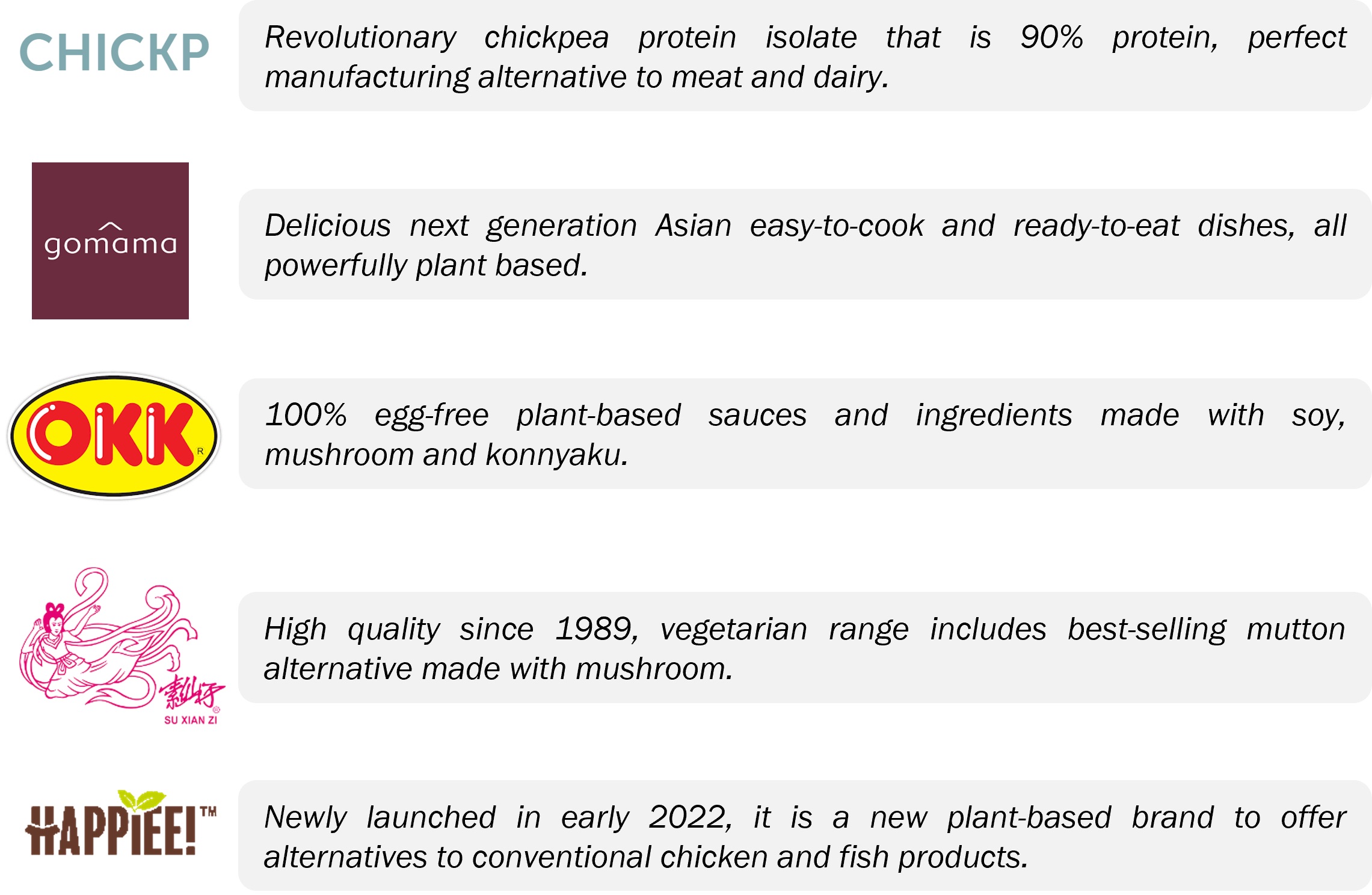
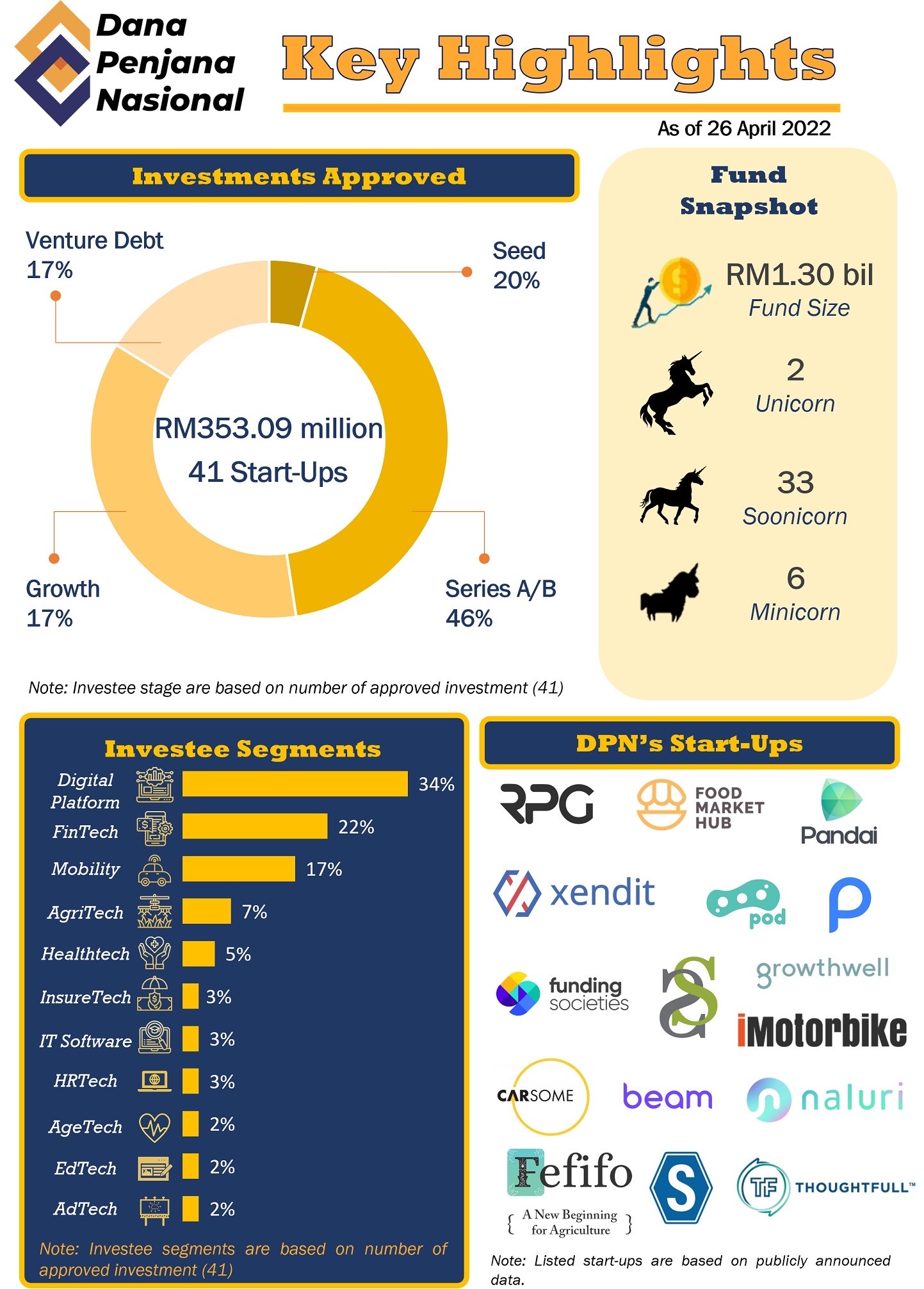
Appendix 1.0: Malaysia Consumer Price Index = Subgroup, Expenditure Class
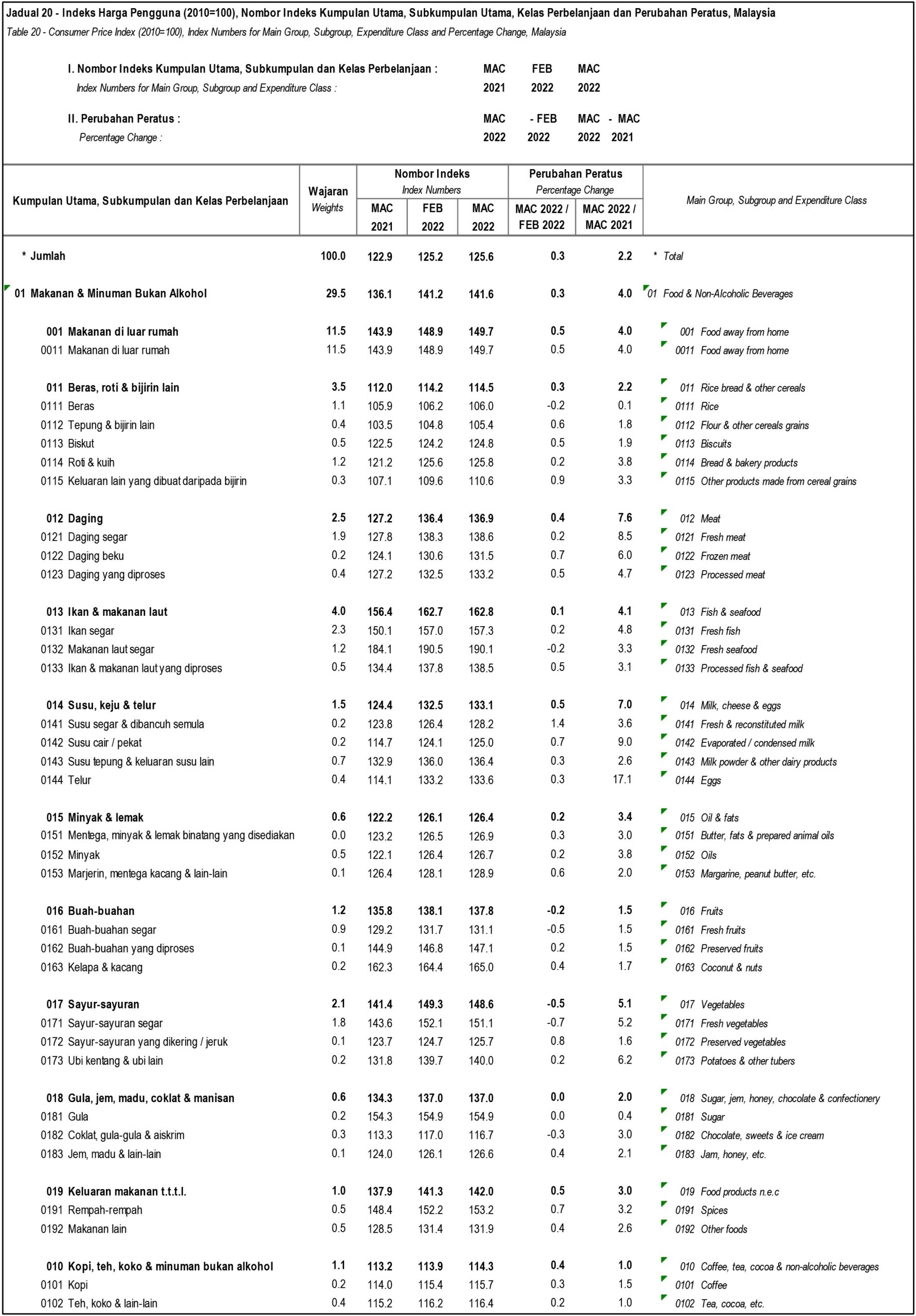
Appendix 1.0: Malaysia Consumer Price Index = Subgroup, Expenditure Class (Con’t)
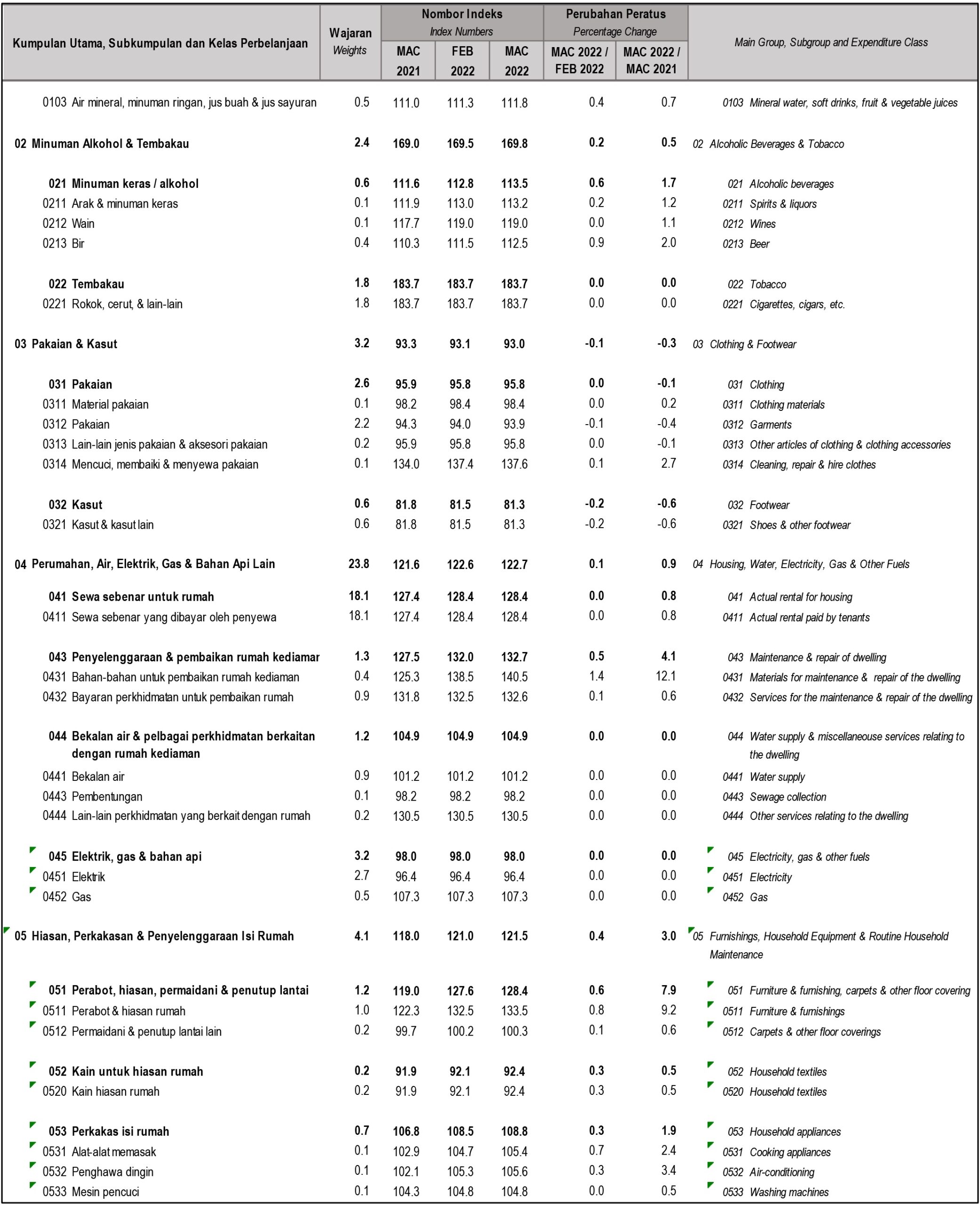
| DISCLOSURES AND DISCLAIMER |
This Newsletter is strictly informational and is issued Penjana Kapital Sdn Bhd (“PKSB”) on the basis that it is only for the information of the particular person to whom it was provided. This document may not be copied, reproduced, distributed or published by any recipient for any purpose unless Penjana Kapital Sdn Bhd’s prior written consent is obtained. This newsletter has been prepared for information purposes only and is not intended as an offer to sell or a solicitation to buy any securities, and/or any other product in Public or Private markets. Penjana Kapital Sdn Bhd is not making any recommendation to buy any securities or other product and the information provided should not be taken as investment advice.
It has been prepared without regard to the individual financial circumstances and objectives of persons who receive it. Penjana Kapital Sdn Bhd has no obligation to update its opinion or the information in this newsletter and Penjana Kapital Sdn Bhd recommends that you independently evaluate particular investments and strategies and seek the advice of a financial adviser prior to entering into any transaction. The appropriateness of a particular investment or strategy will depend on your individual circumstances and objectives. The information herein was obtained or derived from sources that Penjana Kapital Sdn Bhd believes are reliable, but while all reasonable care has been taken to ensure that stated facts are accurate and opinions fair and reasonable, we do not represent that it is accurate or complete and it should not be relied upon as such. All opinions and estimates included in this newsletter constitute our views as of this date and are subject to change without notice.
Penjana Kapital Sdn Bhd is not acting as your advisor and does not owe any fiduciary duties to you in connection with this newsletter and no reliance may be placed on Penjana Kapital Sdn Bhd for advice or recommendations of any sort. Nothing in this newsletter shall constitute legal, accounting or tax advice, or a representation that any transaction or investment is appropriate for you taking into account your investment objectives, financial situation and particular needs, or otherwise constitutes any such advice to you. Penjana Kapital Sdn Bhd makes no representations or warranties, express or implied, with respect to the accuracy of the information or fitness for any particular purpose and does not accept any liability (including but not limited to any direct, indirect or consequential losses, loss of profits and damages) for any use you or your advisors make of the contents of this newsletter or for any loss that may arise from the use of this newsletter or reliance by any person upon such information or opinions provided in the newsletter. This newsletter has been prepared by the analysts of Penjana Kapital Sdn Bhd. Facts and views presented in this newsletter may not reflect the views of or information known to other business units within Penjana Kapital Sdn Bhd. This information herein is not intended to constitute “research” as it is defined by applicable laws. This newsletter is not directed to or intended for distribution to or use by any person or entity who is a citizen or resident of or located in any locality, state, country or other jurisdiction where such distribution, publication, availability or use would be contrary to law or regulation. The information provided in this document has been obtained or derived from sources believed to be reliable. Penjana Kapital Sdn Bhd does not guarantee its accuracy or completeness and does not assume any liability for any loss that may result from the reliance by any person upon any such information or opinion. Such information or opinions are subject to change without notice, are for general information only and is not intended as an offer to sell or a recommendation/ solicitation to buy any securities, foreign exchange or other product.
